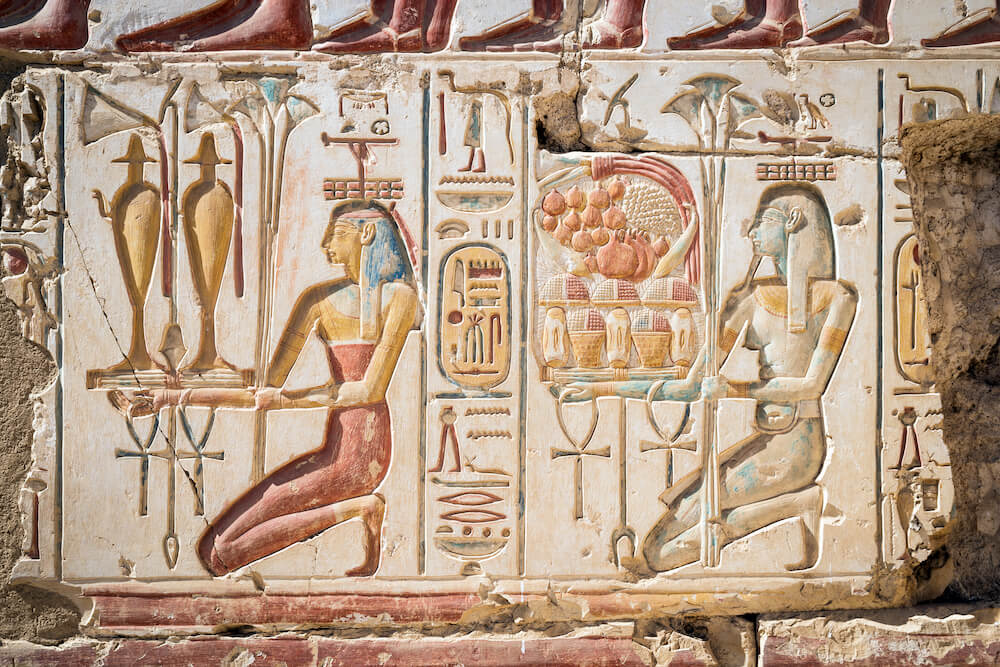Food as an art: how and why people invented haute cuisine
Good food once belonged to the wealthy and powerful: think Roman banquets and royalty’s dinners. But modern restaurants changed everything. Let’s dive into the story of fine dining.

Ancient banquets and cookbooks
Food has always been important to humanity—it encouraged us to develop the first tools and search for new territories, domesticate animals, discover fire, and learn to trade and cooperate. Ancient Egyptians were probably the earliest civilization to use food as a marker of social hierarchy and an essential part of the culture.

Historians suggest that most ancient Egyptians (even the slaves) enjoyed a varied diet, but the nobility eventually formed a distinct cuisine from the rest. While the poor mostly ate vegetables and grains (the records show that the pyramid builders were often fed onions and garlic), the meals of the wealthy included meat, fish from the Nile, poultry, and sweet baked goods.
Interestingly, the remains of Egyptian aristocrats show that many of them drank to excess and suffered from obesity, while almost no one experienced malnutrition.
Ancient Egypt was the first civilization to see its wealthy enjoy distinct food-related hobbies: the pharaohs and aristocrats often kept falcons to hunt game, and many rich people owned vineyards. Although beer was a popular drink, ancient Egyptian nobles were wine connoisseurs. According to archaeologists, nobles were often buried with jars of expensive wine, some even containing information about the drink’s origin: the year of production, the type of grapes that went into it, and the winemaker’s name.
The ancient Greeks developed dining culture even further. Unlike the Egyptians, they had many wealthy tradesmen who weren’t part of the ruling class but were rich enough to enjoy lavish lifestyles. Although these private citizens couldn’t partake in court life like the aristocracy, it didn’t stop them from eating well. In fact, ancient Greece even produced the first known cookbooks.

The most famous cookbook was written by a connoisseur named Archestratus, who lived in the mid-4th century BCE. His recipes were straightforward and elegant, and a large part of the book was devoted to instructions on finding the best ingredients and combining subtle flavors that complement each other. Although we say “epicurean” to mean someone who enjoys exquisite food and fine wine, the Greek philosopher Epicurus argued that living a simple life and avoiding luxury was best. Epicurus reasoned that our desires are dangerous because they set us up for disappointment. Thus, we can be happy through the absence of fear, pain, and desire.
Next up, we’ll discover: What Alexander the Great had to do with ushering in a new era of culinary experimentation? How did the French break the medieval “fast or feast” mentality? Which Buddhist tradition played a crucial role in the birth of modern fine dining?
Roman excess and the birth of exotic dishes
Even though the ancient Greeks had enjoyed a varied diet, it was Alexander the Great who pushed the world into an era of culinary exchange and experimentation. As his empire expanded, Alexander created a vast trading system. He connected Europe to China and India. As a result, affluent westerners could now enrich their diet with exotic meats, new fruits, and, most importantly, spices.
Spices soon became a symbol of luxury and political power. Whereas the Classical Greek culture valued simple dishes made with the finest ingredients, the Hellenistic period that came after Alexander’s conquest was famous for its culinary opulence, exotic ingredients, and complicated recipes combining spicy, savory, and sweet flavors.
